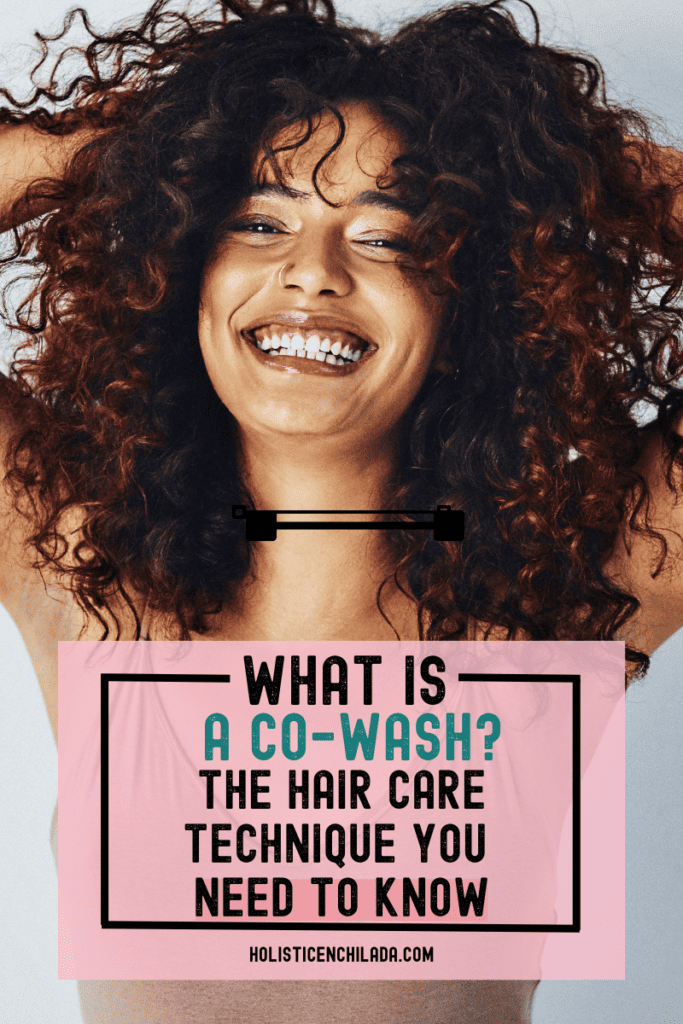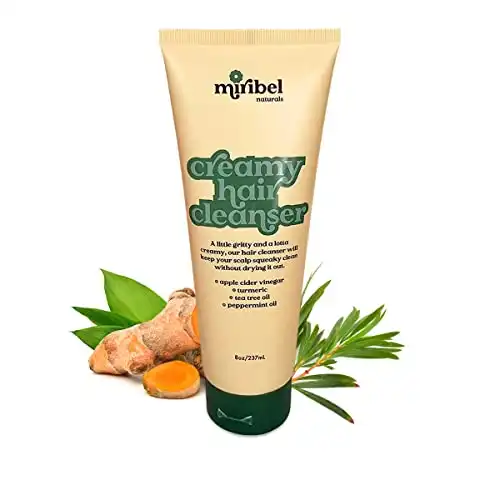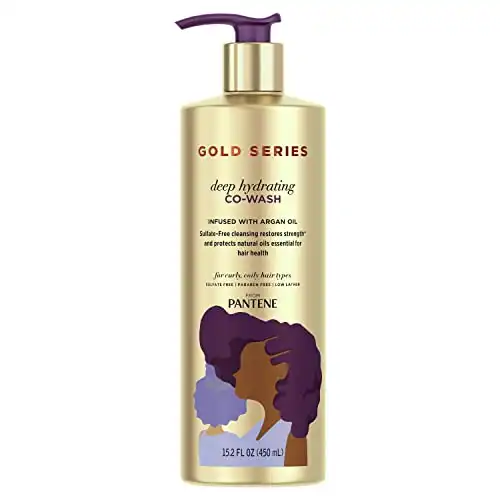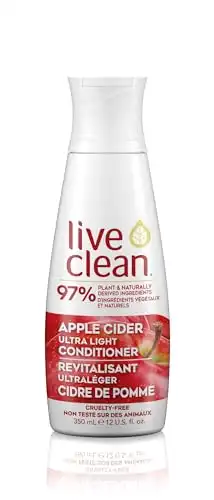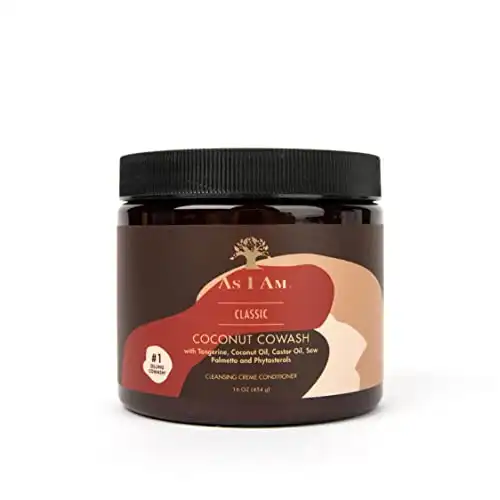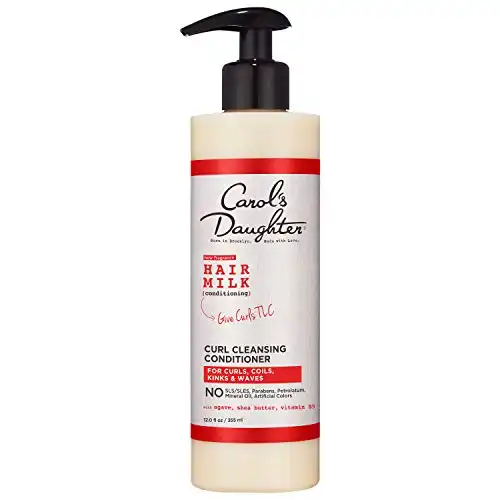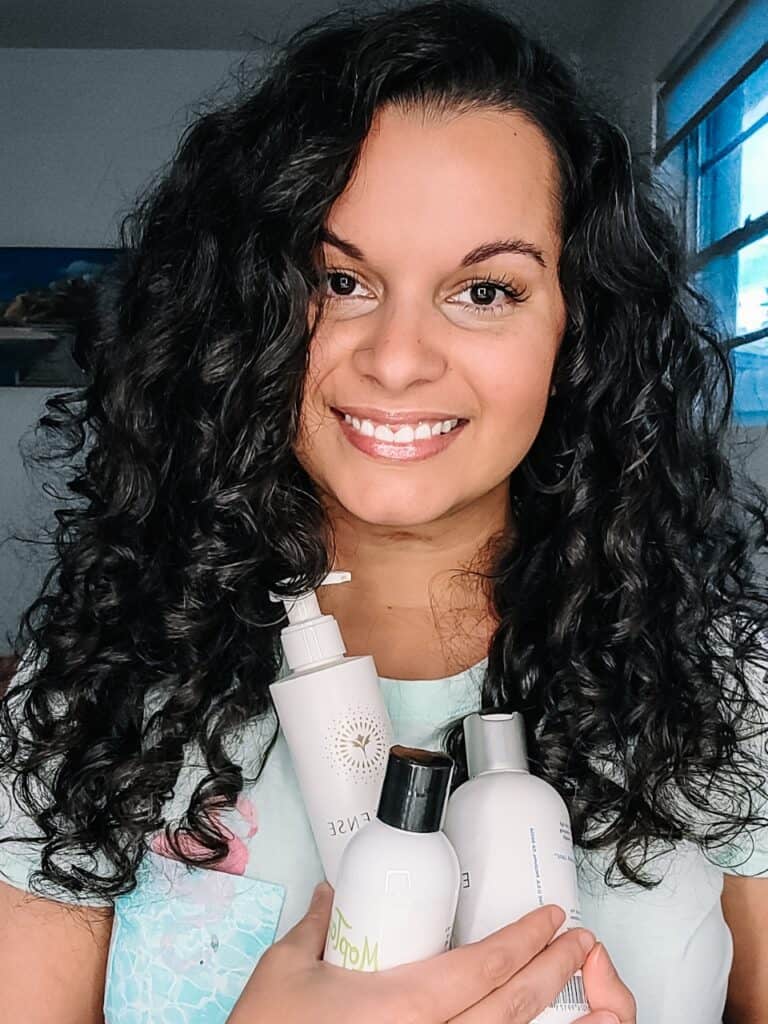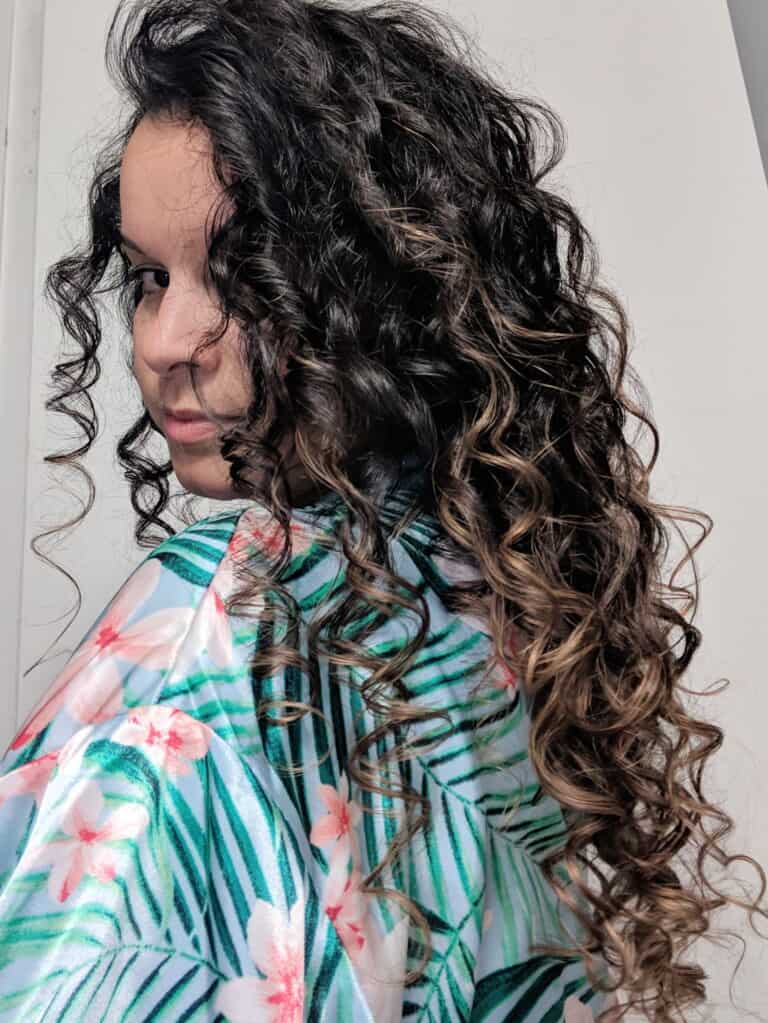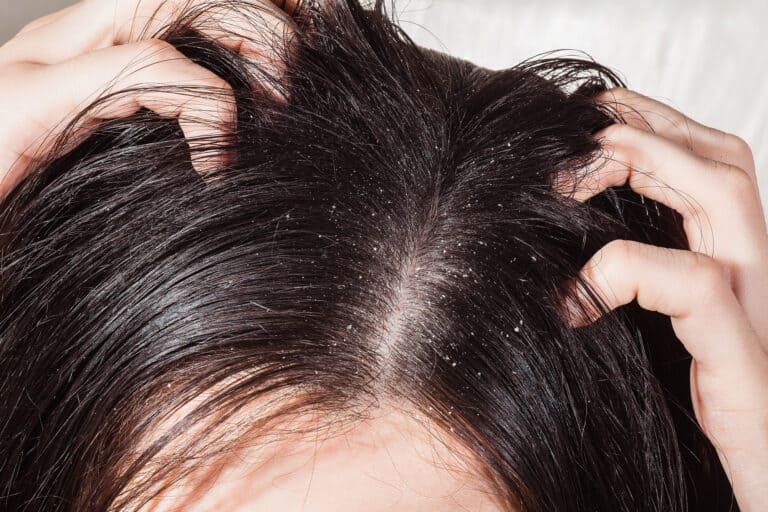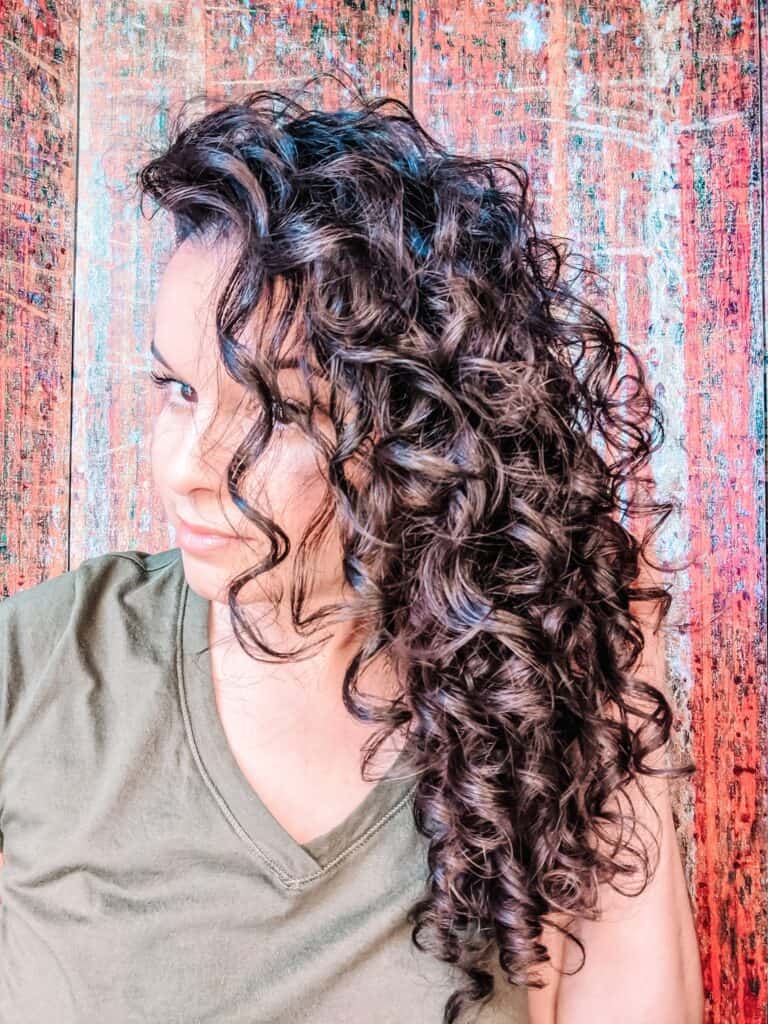What Is a Cowash? The Hair Care Technique You Need To Know
This post may contain affiliate links, and I will earn a commission if you purchase through these links. Please read the disclosure policy for more details.
If you find that shampooing your hair makes it feel dry and brittle, co-washing could be the perfect way to achieve silky-soft tresses.
Co-washing is a way of cleansing your hair with a creamy conditioning cleanser instead of traditional shampoo. This method is particularly beneficial for coarse, thick, or dry hair, and leaves your locks feeling healthy and hydrated instead of dry and brittle.
In this guide, you’ll discover what co-washing means and why it’s become so popular. We’ll explain how to choose a cowash product and share some of the best products on the market, together with step-by-step instructions.
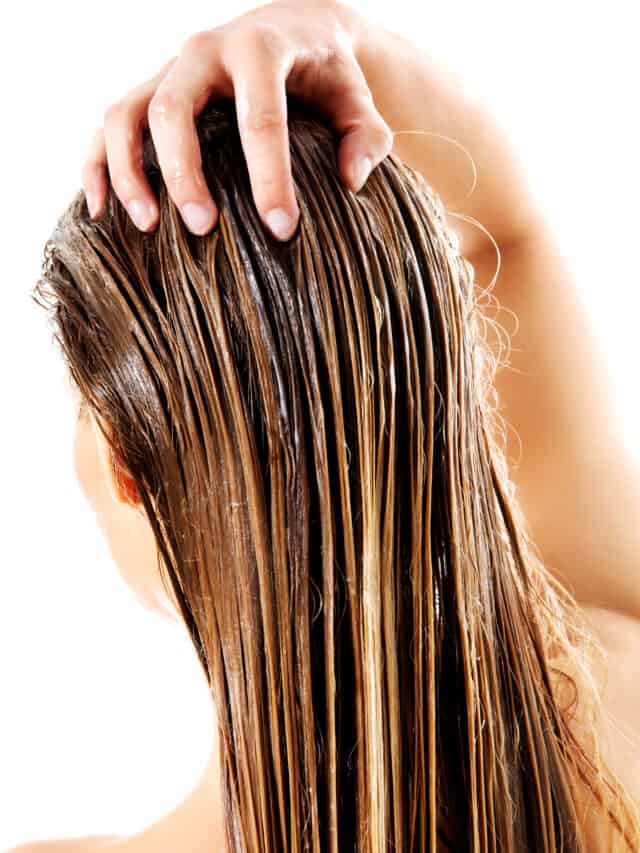
What Is a Co wash?
Co-washing is short for conditioner-only washing, which means washing your hair with conditioner alone. It’s sometimes called the no poo method, as in no shampoo.
Most conditioners contain tiny amounts of a type of detergent called cationic surfactants, such as cetrimonium and behentrimonium chloride. When you apply conditioner to your scalp and hair, these surfactants pick up debris, which is then rinsed away with the conditioner, leaving your hair feeling clean.
Cleansing your hair in this way won’t leave it as clean as shampooing, but you also avoid the drying effect of the sulfates and other harsh ingredients found in many shampoos. If your hair is thick or coarse, you can even co-wash daily without it becoming dry and brittle.
Co-washing retains more moisture than when you shampoo your hair. This means that the moisturizing agents in your conditioner work more effectively, leaving your locks soft, shiny, and manageable.
Choosing the Right Product
If your hair is fairly thick, you can probably use your regular conditioner. However, it’s best to avoid conditioners that contain silicones like dimethicone. These ingredients help smooth your hair cuticle but can build up on your strands, leaving your hair flat and limp.
If your hair isn’t quite as thick, cleansing conditioners or a dedicated co-wash might give you better results. These are specifically designed for co-washing and contain ingredients which will wash your hair gently.
Look out for the following on the ingredient list:
- Emollients like shea butter, argan oil or castor oil to soften and smooth your hair – though these can be heavy so consider your hair type.
- Proteins like wheat or soy protein to give your hair a protective coating
- Humectants like honey or panthenol to lock moisture into your strands
- Moisturizers like aloe vera or amino acids to leave your locks soft and shiny

Benefits of Cowashing
Transitioning from your regular routine can have several benefits for your tresses.
Avoid Sulfates
Many people choose to co-wash because they want to avoid sulfates and other harmful ingredients that strip the natural oils from curly hair, leaving it dry, brittle, and frizzy.
Preserve Your Hair’s Natural Oils
Avoiding sulfates will help to maintain the oils that keep your scalp and hair healthy.
Maintain Hair Moisture
Using a conditioner or co-wash product will moisturize your mane more effectively, leaving it hydrated, more manageable, and frizz-free.
Make Detangling Easier
Using the co wash method will also lubricate your strands, making them easier to detangle and less prone to split ends and breakage.
Problems with Cowashing
Buildup
The most common issue with cowashing is buildup. One thing you need to make sure you do is clarify on a regular basis to avoid this problem. While cowashing is great, you do need to do a more thorough cleanse on a monthly basis so that your hair can actually absorb the moisture and stay healthy.
Loss of Hold or Curl Pattern
Because of the amount of moisture you get from cowashing, it can lead to minimal hold from your styling products. It can also stretch out your curl pattern over time. If you notice either of these happening, it means that cowash may not be the best choice of hair cleanser for you or that you need to do a clarifying wash.
How to Co wash Effectively: Step-By-Step
Washing your hair without shampoo will take some adjustments to your hair care routine, but following these step-by-step directions will make the transition easy.
1 – Saturate Your Hair Completely
Saturate your strands with water until your scalp and hair are soaking wet. This will loosen dirt, sebum, and product buildup, making them easier to rinse out. It also makes distributing the cleanser easier.
2 – Be Generous
Ignore the instructions on your conditioner bottle; you don’t need a dime-size dollop of conditioner or co wash. You need to use enough product to coat your scalp and wet hair completely from root to end. Depending on the length of your locks, this could mean an amount the size of a golf ball.
3 – Apply the Conditioner
Massage your conditioner thoroughly into your scalp to break down any buildup of sebum and styling products. Then distribute it evenly through to the ends of your hair and leave for three to five minutes, or even longer if your hair is very dry or damaged.
4 – Rinse and Reapply
Rinse your hair thoroughly with warm water until all of the product has been washed out, then reapply your conditioner according to the instructions on the bottle to condition your hair and rinse again. Alternatively, you could use a leave-in conditioner at this stage.
5 – Dry and Style As Usual
You may find that your hair needs less styling product when it is properly hydrated.
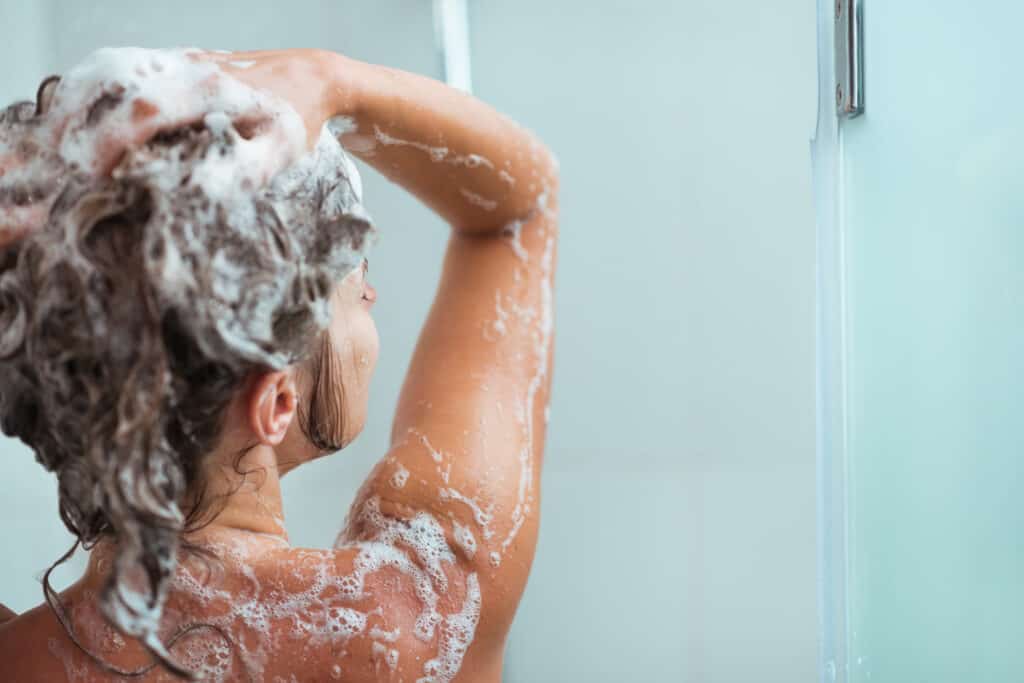
Co-wash vs Traditional Shampoo
Shampoo often contains sulfates, a type of detergent that gives you squeaky-clean hair. These are highly effective at removing dirt and debris from your hair and scalp, including:
- Dead skin cells
- Sweat
- Sebum
- Styling products
- Environmental pollutants
However, they can also strip the natural oils and moisture from your strands, leaving them dry and prone to breakage.
Switching to a co-washing regimen can leave your mane softer and more manageable initially, but many people find that their hair can start to feel weighed down over time.
A good compromise is to use a clarifying shampoo once or twice a month to deep-clean your hair. Another option is to alternate between conditioner washing and using a sulfate-free shampoo.
Is Cowashing Suitable for All Hair Types?
Most hair types will benefit from co-washing, especially if your hair is dry or damaged.
Not sure which hair type you have? Our curly hair type quiz will help you find out!
Curly type 3 hair and coily type 4 hair both tend to be coarse and naturally dry. That’s because the curls and kinks make it more difficult for sebum to travel down from your scalp to the tip of each hair shaft.
So, these natural hair types will clearly benefit from co-washing with rich conditioners or co washes. You could even leave the product on for a bit longer than five minutes, but be sure to rinse it all out thoroughly.
Wavy and finer curly hair types are usually not as dry, so it’s better to stick to a light co-wash. Also, low porosity hair that struggles with buildup may do better with regular shampoo.
Co washing is also excellent for color-processed hair as long as your scalp is healthy and unbroken. This technique doesn’t strip pigment like shampoo, so it can help your color last longer.
Who Shouldn’t Use a Co-Wash?
Co-washing is not recommended if you have certain scalp issues like dandruff, seborrheic dermatitis, or psoriasis. These conditions can worsen if you use co-wash products, as co-washing isn’t enough to break up the flakes or remove excess oil from your scalp.
Instead, you could try using medicated shampoos like Neutrogena T/Gel or T/Sal.
If you have fine, straight locks, co-washing could result in them becoming weighed down and limp. Sticking with your regular shampoo and conditioner routine might be better for your locks.
The Best Conditioners for Cowashing
If you’d like to try co-washing your hair, these are some of the best co washes and cleansing conditioners to try:
Miribel Naturals Creamy Hair Cleanser
I don’t love cowashes for my fine hair but this one is the one I’d use if my hair did well with them. It has a nice light lather, gentle exfoliating beads, you don’t need too much, it’s very lightly scented, and I love the natural formulation.
Code HOLISTICENCHILADA saves you 10% at miribelnaturals.com
Pantene Gold Series Deep Hydrating Co-Wash
This ultra-rich cleansing conditioner contains argan oil to gently cleanse your locks and infuse them with rich hydration. This product was specially developed for natural hair and is free from parabens and sulfates.
Shea Moisture Curl Moisture Co-Wash
This deeply moisturizing cowash smells gorgeous and keeps your curls clean, soft, and tangle-free. It’s enriched with certified organic raw shea butter, making it perfect for dry, damaged curls or coils.
Live Clean Ultra Light Apple Cider Conditioner
This gentle, hypo-allergenic conditioner contains apple cider vinegar, organic chamomile extract, and sunflower oil to remove residue and restore moisture to your locks. It’s cruelty-free and free from parabens, sodium lauryl sulfate, and dyes.
As I Am Coconut Cowash
This cowash contains a rich blend of caster oil, coconut oil, and nourishing ingredients to cleanse and hydrate your hair. It removes product buildup and sebum while conditioning your strands and keeping curls tangle-free.
Carol’s Daughter Hair Milk Sulfate Free Cleansing Conditioner
This conditioner will moisturize your hair from roots to ends while rinsing away impurities. It delivers deep hydration and makes detangling curly hair easier.
FAQs
Still looking for more information about co-washing hair? These Frequently Asked Questions might help:
How Often Should You Co wash?
It’s fine to co-wash your hair daily or just a few times per week. If your hair is very coarse or dehydrated, you might want to cleanse your hair more often, and unlike using regular shampoo, daily co washes are safe for your hair.
Can Cowashing Replace Traditional Shampooing Altogether?
Cowashing alone won’t cleanse your hair as thoroughly as regular shampoo. Without properly cleansing your hair with a clarifying shampoo every few weeks, your hair may develop a buildup of conditioner, styling product, sebum, or sweat.
Can I Use Any Conditioner for Cowashing?
Your regular conditioner may be suitable for washing if you have thick or coarse strands. However, avoid using conditioners that contain silicones, and you will probably get better results from one of the dedicated co-wash products listed in this guide.
The Bottom Line
Co-washing has become a popular way to care for hair, particularly curly and coily hair types, which can be naturally dry and brittle. This technique allows you to avoid the harsh, drying effects of sulfates and other harmful ingredients in many regular shampoos.
Finding the right conditioner and a washing schedule can take time. It’s essential to choose carefully, as ingredients like silicones will weigh down your locks.
You might still need to use clarifying shampoo to give your locks an occasional deep cleanse. But switching your regular shampoo for a conditioning cleanser or co-wash could be the key to soft, shiny, healthy-looking hair.
